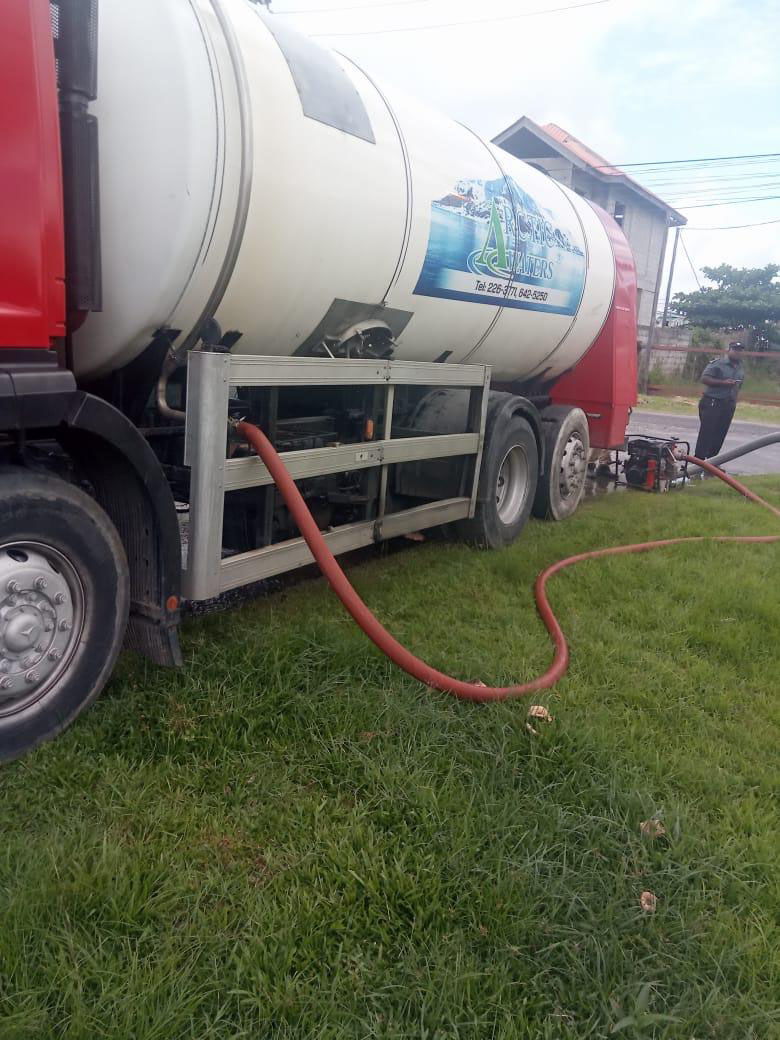The Guyana Water Incorporated (GWI) has promised to take “strict” action against a local water company, which it said was caught filling one of its trucks from a fire hydrant in order to sell to its customers.
In a press release, GWI said that officials yesterday witnessed a truck with an approximate capacity of 10,000 gallons belonging to Arctic Waters being filled from a fire hydrant in Garnett Street, Newtown, Kitty, with the aid of a “rogue” member of the Guyana Fire Service. It accused the company of tampering with its infrastructure. “GWI also takes this opportunity to condemn the actions of rogue officers within the Guyana Fire Service who seek to condone and assist in such activities, as was also witnessed by officials from the utility,” the statement said.
However, when contacted by Sunday Stabroek yesterday, a company official who identified himself as C. Douglas and said he was the owner of Arctic Waters, denied the allegation.
Douglas said that since the business was established, the company has been purchasing water from the Wieting and Richter Ice House in Water Street, Georgetown. He added that the company even has receipts to show this. “We don’t use GWI water,” Douglas said.
GWI said “strict” actions would be taken against those involved in tampering with its infrastructure.
“Arctic Waters, in committing such action, has evaded paying some $6,750 per tank of water and the utility will be taking strict actions against them for this illegal activity,” it added.
GWI reminded the public that tampering with its infrastructure is punishable by law and can lead to a fine of $30,000 for residential customers and $65,000 for non-residential customers.
“Fire hydrants exist only for use in the event of a fire and emergency cases where GWI sees fit based on its own assessment,” GWI noted.






